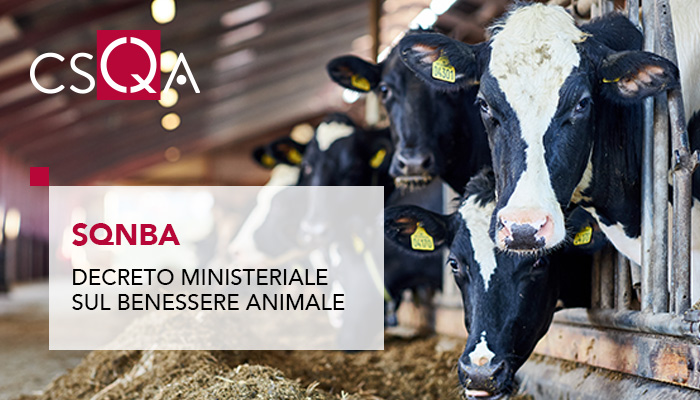
The interministerial decree on animal welfare , approved by the State-Regions Conference last week, is part of a broader strategy aimed at supporting the transition process of the livestock sector towards a more sustainable breeding model, improving animal welfare, raising the quality and wholesomeness of agri-food production and reducing antimicrobial resistance (AMR), in the awareness that animal welfare and drug consumption are increasingly interconnected elements.
Various tools that can be activated within the Common Agricultural Policy contribute to this strategy, such as:
- the strengthening of technical assistance through business consultancy,
- the sharing of strategic information available in health and livestock databases,
- the exchange of good practices,
- the transfer of research results,
In this context, the animal welfare quality system aims to pursue the aims introduced by the Farm to Fork and Biodiversity 2030 Strategies , relating to animal welfare and environmental sustainability issues, also contributing to the protection and resilience of agricultural and natural areas.
The National Quality System for Animal Welfare (SQNBA) strengthens the environmental, economic and social sustainability of animal products, thanks to the accredited certification of farms and the supply chain.
The SQNBA defines a national production scheme which establishes the general rules and technical requirements for the management of the breeding process of animals reared through the evaluation of parameters established on a scientific basis.
The SQNBA represents a single reference standard in the voluntary certification relating to animal welfare, thus putting order in the various certification protocols currently existing concerning the same area, also contributing to clearer information for the consumer. (Source: https://www.politicheagricole.it /)